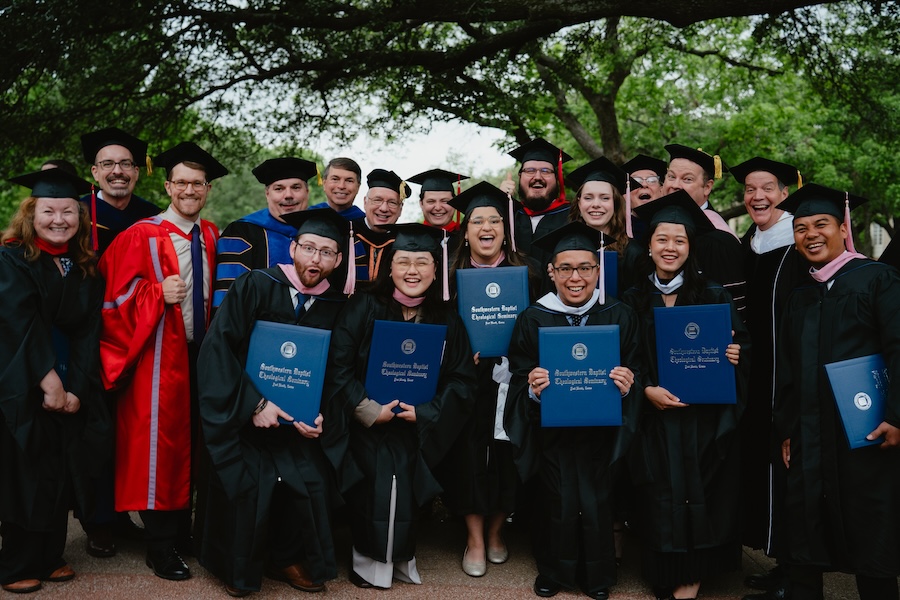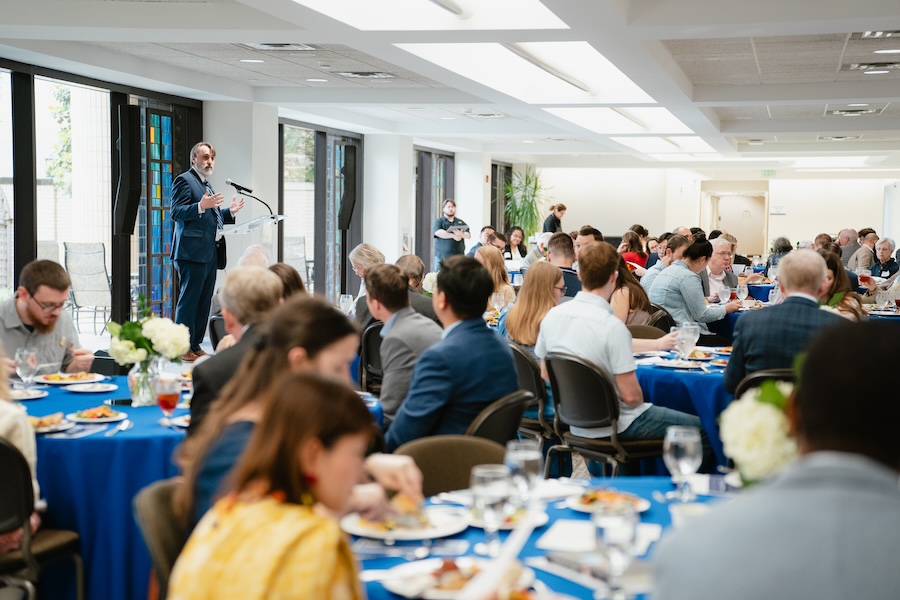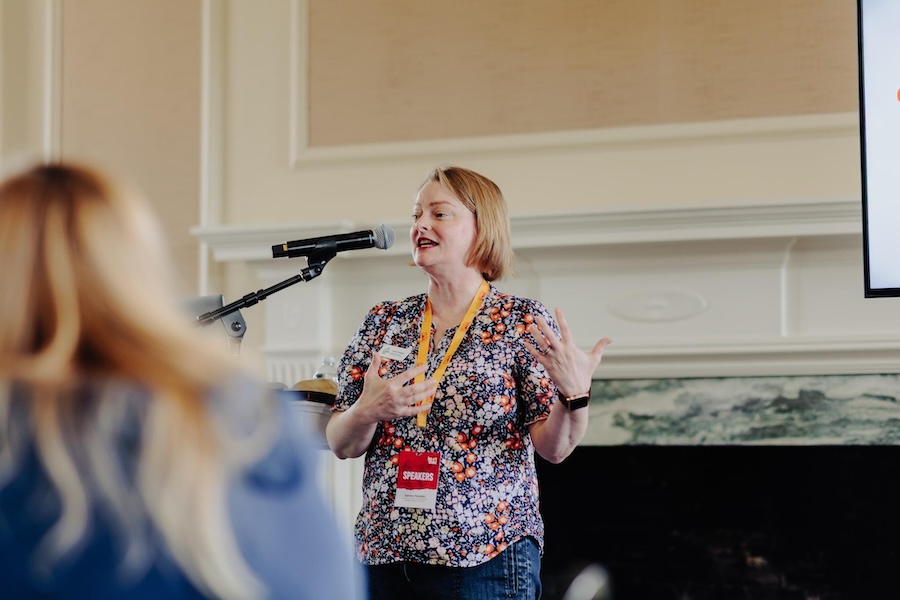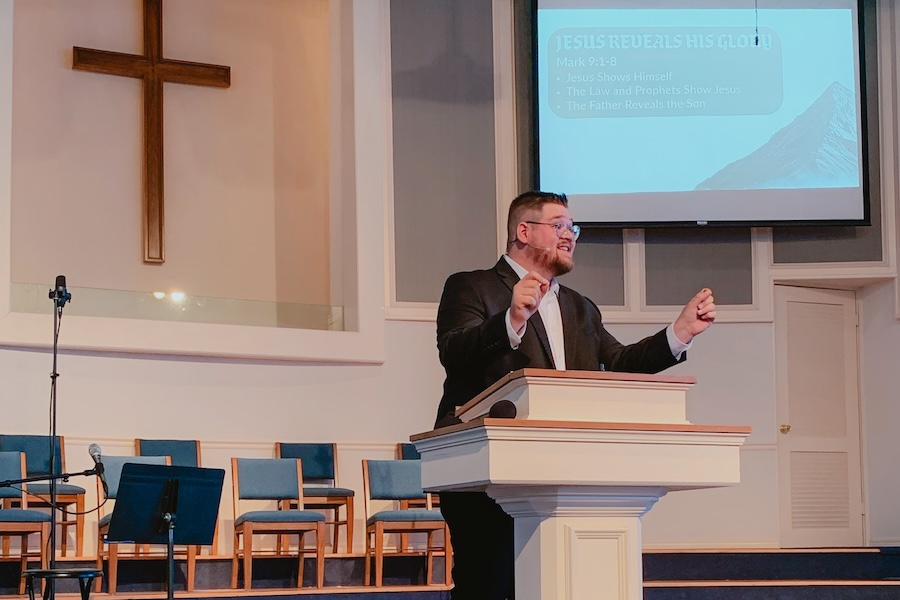Jarvis learns life lessons through TBC professors
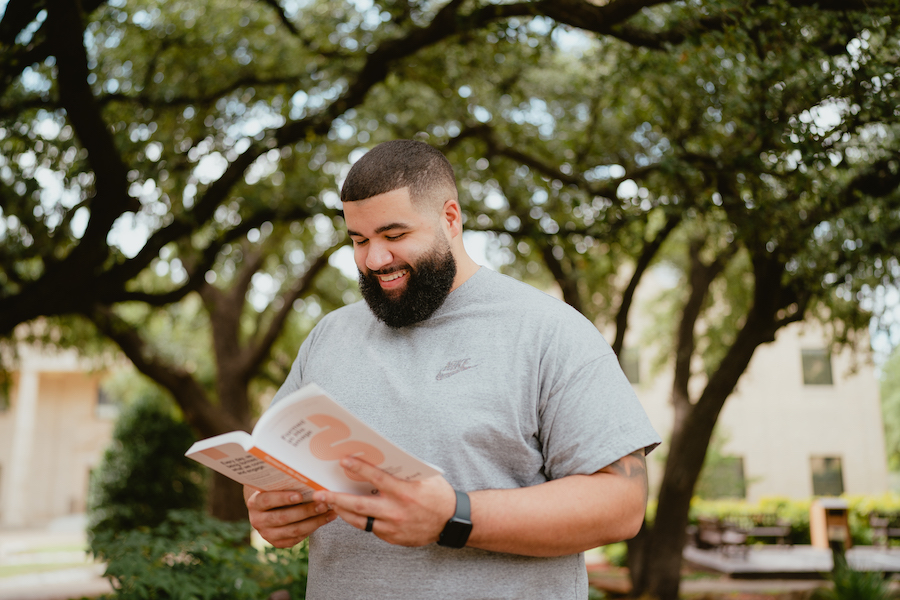
In between throwing the discus as a high school athlete at track meets, Jordan Jarvis, a Bachelor of Arts in Christian studies student at Texas Baptist College (TBC), said he was “just talking to girls” while there was “this guy” who “kept coming over and talking” to him.
Jarvis remembered later learning “the guy,” who he described as “rough around the edges” and “there” at all of his meets, was the father of one of the girls he would talk with and also a youth pastor.
“He was rough and it was what I was used to was rough,” Jarvis recalled, adding the youth pastor had his daughter invite him to church.
A self-described “angry kid,” Jarvis was “raised” by his mother in North Alabama. His parents divorced when he was young and his dad served in the military. However, he remembered it was his father who “did plant seeds” in him and his oldest brother as he “did share the Gospel.”
“I do remember that vividly – him describing hell and him describing heaven, describing what Jesus did,” Jarvis said. “I always had like, a little bit of a concept of that, but it was just never actualized” in light of childhood experiences that included harm by “all these people that were supposed to care about me.”
However, it was the youth pastor that God would use to water seeds Jarvis’s father planted.
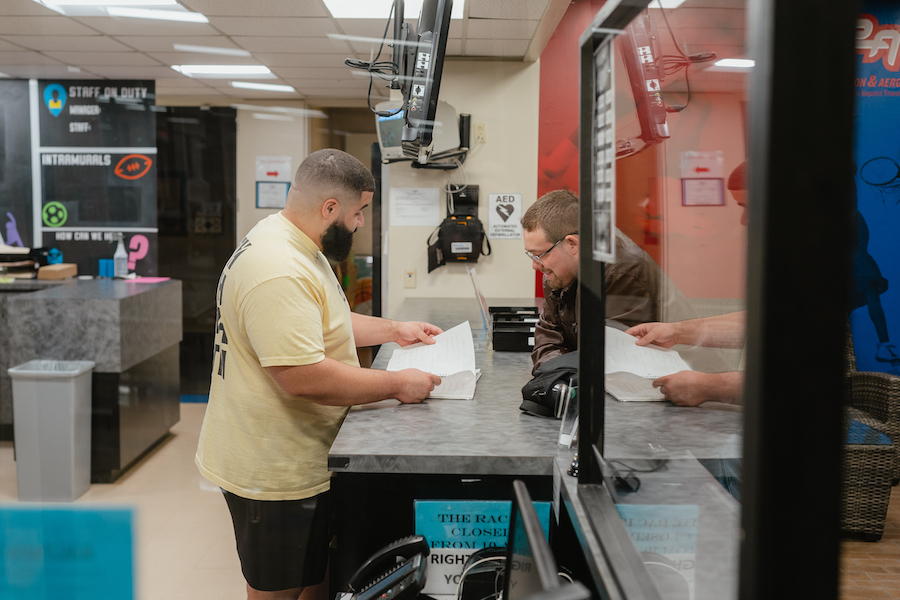
Jordan Jarvis, a Bachelor of Arts in Christian studies student at Texas Baptist College (TBC), began studying at the undergraduate college of Southwestern Baptist Theological Seminary in January 2022. The Alabama-native said he has not only learned lessons from his professors in the classroom, but also as they have “modeled” for him how to be a “future father and uncle.”
When Jarvis visited the church, the youth pastor shared the Gospel – “he didn’t dim the lights, he didn’t, you know, try to woo me in with snacks and nothing like that,” he recalled. “It was raw.”
The message the youth pastor shared at what is now known as Connect Church, a church in Guntersville, Alabama, left Jarvis in tears. Describing himself as “a bigger dude” since he was a seventh grader, Jarvis said he was “sitting there crying my eyes out” when an “older lady” who was sitting in front of him said, “Baby, if you feel the Lord calling you, you need to respond.”
“I gave my life to Christ there and I got baptized two weeks later, the day before my 16th birthday,” Jarvis explained.
Following high school graduation, Jarvis began attending Jacksonville State University, a public, four-year college in Jacksonville, Alabama. Jarvis played football at the school and “bounced around…all the degree programs.” He said he “wasted a lot of time, but I was gaining things in the long run.”
However, when he returned to his home church in Guntersville, Jarvis said he was invited to be the student minister. Through serving in the role, he began to realize, “This is what God is calling me to” as “vocational ministry is what stirs my affections” as he was getting “energy from thinking about doing ministry.”
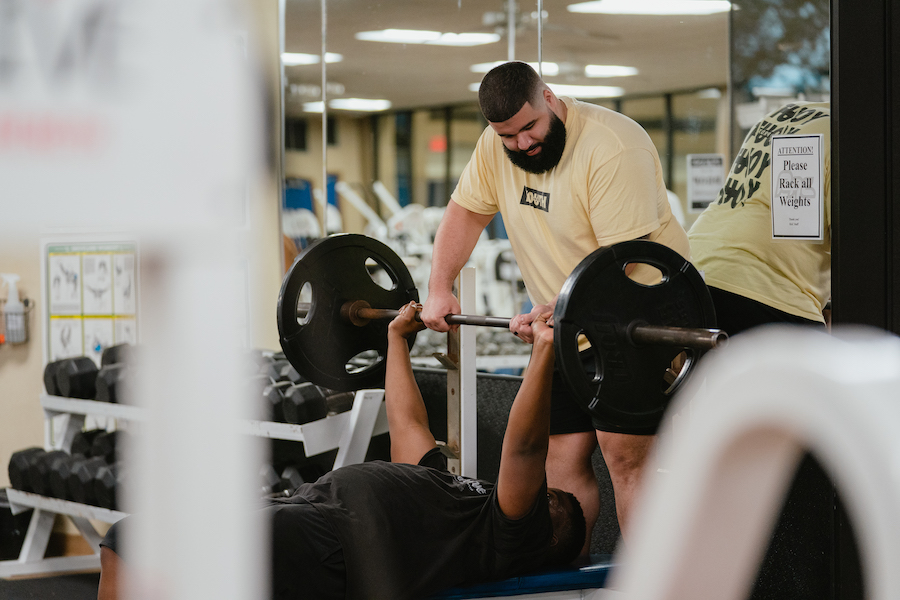
In addition to studying at TBC, Jarvis works at the Recreation Aerobics Center on campus as the assistant to the director, Jerome Jones. Jarvis said Jones has been his “biggest mentor.”
The awareness led him to talk with his then fiancé, Maddie, who grew up as the daughter of a church planter. Jarvis remembered Maddie told him, “If this is what God is stirring your affections for, like, why not go be obedient to Christ and then if you feel like you need to get another job to help support the family or to lessen the burden of the church having to pay you, that’s fine. Do that after.”
Jarvis said when he went to speak to his pastors, they said they “were kind of waiting to see like when this was going to enter the fold for you again.” They prayed about it “for a couple of months,” he said.
In October 2021, Jarvis married Maddie and while living in her hometown in South Carolina, he received a letter of confirmation of acceptance to TBC. Jarvis said he and his wife moved to Fort Worth “sight unseen” because they had “prayed about it” and “felt like we were called to Fort Worth and called to the school.”
Jarvis began at TBC in January 2022 and has seen the impact his classroom learning has had not only in ministry preparation but also in his present day. He explained he began his coursework ready for “practical ministry” because he saw “so much need in the community that I’m from,” including having knowledge of Scripture, theology, and doctrine.
While systematic theology and biblical anthropology seem more “practical,” Jarvis said the course Great Books of the 19th Century, which included reading about utilitarianism and the origin of species, has helped him as he has engaged culture.
Jarvis added, “The thing that I’ve enjoyed probably the most is my interactions with the professors” because they are not just teaching him all they know in the classroom, but he is “seeing them as dads” and “husbands.”
“They’re modeling for me what it will look like not just in student ministry, but just pastorally as a future father and uncle, and all those things,” Jarvis said. “They model it well.”
Jarvis has been “impacted” by Micah Carter, associate dean and assistant professor of theology at TBC, Todd Bates, dean and professor of philosophy at TBC, Blake McKinney, assistant professor of history and humanities, and Tyler Bauer, an adjunct instructor who taught his great books course.
In addition to his coursework, Jarvis works as the assistant to the director, Jerome Jones, at the Recreation and Aerobics Center (RAC) on campus. He said Jones has been his “biggest mentor” as he takes the time to shape him “as a man” as he teaches Jarvis “how to be a father without me having kids yet – teach me how to be a better husband.”
Jarvis encourages others to attend TBC because of the “open door policy” of the professors, as he is able call, text, and email his professors. But, having a “mentor” is the “most important” for him, he said.
However, he concluded, the opportunities in Fort Worth provide “ministry” and “culture” as “it feels like” the city has “every single culture.”
Jarvis said the diversity is “awesome to be able to interact with” because “especially if we’re doing ministry the way we’re supposed to” he wants “the churches to look like heavens going to look like.”
